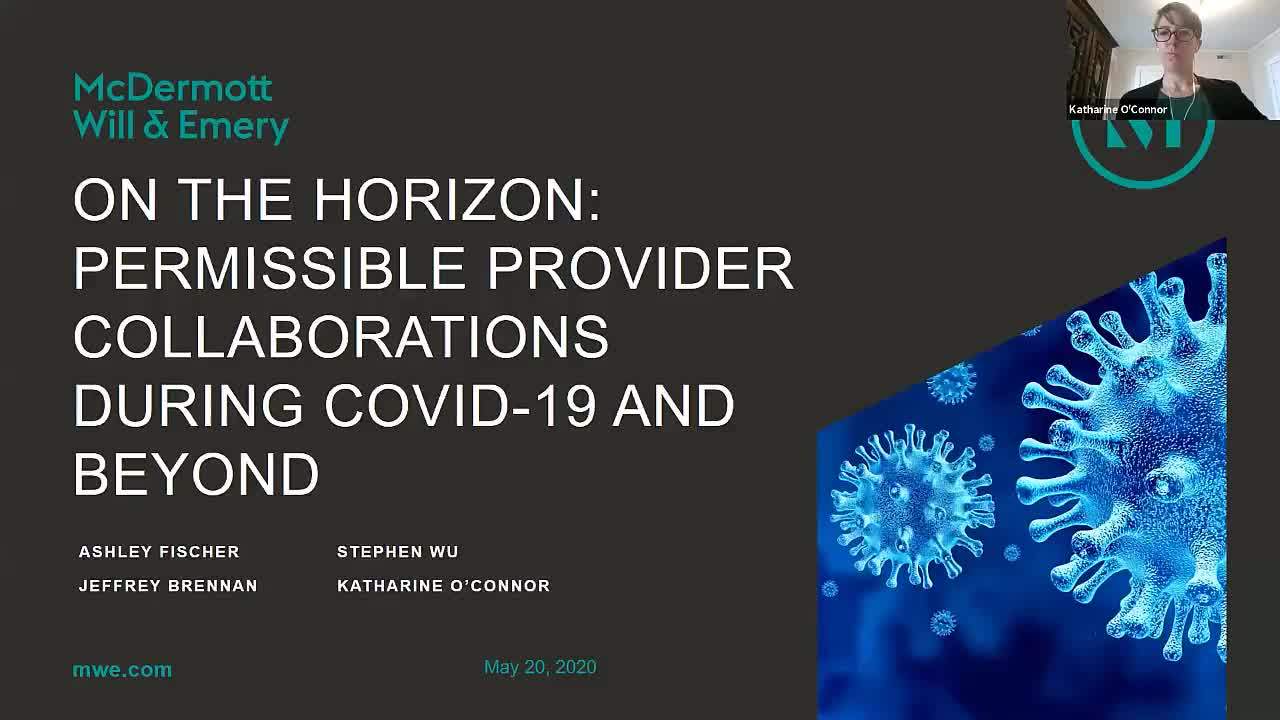If you missed our latest webinar, enjoy the replay below and learn more as we provide highlights on competitor collaborations, avoiding violations in labor markets, provider M&A and partial acquisitions.

- Antitrust compliance remains an important priority in the US. While companies have been engaged in finding creative solutions to COVID-19 challenges and regulators are expressing a willingness to be more flexible in interpreting and enforcing the law, the pandemic is not a carte blanche to engage in anti-competitive
- Regulators are more prone to accept collaborations limited in scope to respond to COVID-19 and its aftermath, and arrangements undertaken at the behest of or in partnership with government actors. Companies should avoid high-risk conduct such as direct exchanges of competitively sensitive
- Procompetitive agreements not relating to price, wages or market/product allocations remain possible. Companies should conduct an antitrust analysis before entering new collaborations and consider whether it would be helpful or advisable to engage with federal antitrust authorities or state governments to receive
- COVID-19 does not change antitrust rules for labor Antitrust laws apply to labor markets just as they do to markets for goods and services. Agreements with competing employers not to recruit, to set employee compensation or hours or to exchange confidential compensation information that reduces compensation can violate the antitrust laws. The Department of Justice (DOJ) will prosecute certain labor market antitrust violations criminally.
- Establish guardrails to minimize antitrust risk in labor markets. Non-solicitation covenants that are part of broader collaborations should be tailored in scope to minimize antitrust Compensation benchmarking and salary surveys should be done in compliance with DOJ, FTC guidance.
- Antitrust planning for transactions should begin early in the deal. This allows the antitrust strategy to be developed and pursued based on specific facts. This planning should include due diligence regarding market conditions, the rationale or justification for pursing the transaction and the financial position of the Parties should also adopt protocols for document creation and communications.
- Parties should consider transaction efficiencies, and how they benefit payors and patients. Clearly articulating the deal’s cost, access, quality and other benefits can help reduce deal delays from antitrust
- Partial acquisitions potentially may help healthcare entities mitigate both the financial impact of the COVID-19 crisis and antitrust Acquiring a minority share in a rival can be less competitively restrictive than doing a full-scale merger or acquisition, because by law the parties must remain and act as separate and independent competitors.
- But anticompetitive effects can result from a partial acquisition and the FTC/DOJ Horizontal Merger Guidelines identify three reasons why: the partial buyer may be able, through board seats or governance rights, to influence the target’s decisions; the buyer may have an incentive to compete less aggressively to protect its investment; and the buyer may have access to its rival’s [...]
Continue Reading
read more

 Subscribe
Subscribe
